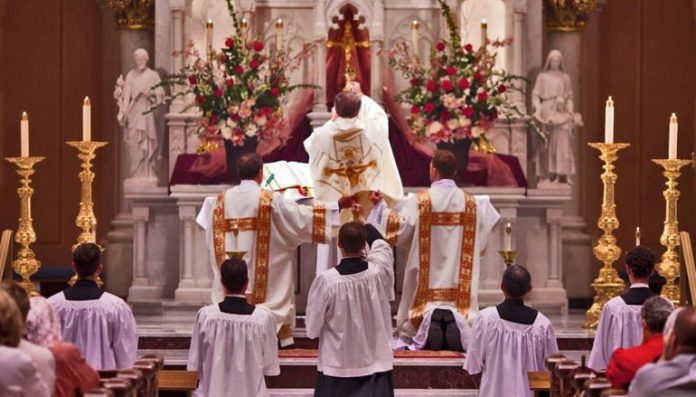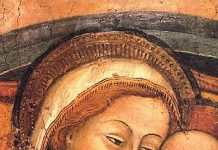My first thought on the recent liturgical Motu Proprio of Pope Francis, Desiderio Desideravi, was similar to Peter Kwasnieski’s – that the Holy Father’s reasoning hinges upon one disputable principle: That the current liturgy in the Church is a direct fruit of the Second Vatican Council, willed into being, at least in potentia, by the conciliar Fathers themselves.
As we pointed out earlier, before the Pope’s letter, the way the Novus Ordo is celebrated bears little resemblance to what was envisaged by those 2,900 bishops gathered in Rome in 1962. Most of those mitred heads, when they gave their ‘ayes’ to the Constitution on the Liturgy, Sacrosanctum Concilium, would have balked mightily had they foreseen the loss of so much – Gregorian chant, polyphony, Latin, transcendence, silence, solemnity, mystery, all of which are called for in the conciliar documents.
Whatever the Pope’s intentions may be, a reduction of the sacramental symbolic mystery, as Josef Ratzinger argued, leads almost inevitably to a reduction of faith. At first, as a young peritus at the Council, Father Ratzinger was all on board with the new mode of liturgy, and some reform was likely needed. But he was soon disillusioned, seeing the iconoclastic mayhem of the post-conciliar era, recounted in gory detail in countless articles and books, to say nothing of the lived experience of many readers. What the liturgy needed was a bit of light gardening – think a bonsai tree, and not a backhoe.
Where we go from here is anyone’s guess. As much as Pope Francis is determined, it does not seem the usus antiquior is going away anytime soon. Yes, they are relatively small in number, but with thriving parishes full of young and growing families. One wonders what will happen to the Novus Ordo, as so many parishes fade to grey, and to oblivion. Will it be reformed and rehabilitated, brought into ‘order’? Will the traditional Mass help shape and form the new Mass, as Pope Benedict had hoped? What of the burgeoning developing world, and the millions of Catholics across the globe? Whither their liturgical future? What will hold it all together?
One thing is for certain, God will not abandon us. The Church, and the sacraments, are Christ’s, and may His will be done.
And as we pilgrimage through life, we must not abandon the sacraments, nor Christ Himself! We should strive, in our own way, to make the Mass as solemn and reverent as we might, especially by our own interior disposition, which is the primary way we participate in the Holy Liturgy. Offer up what we must – and we should learn to tolerate some level of imperfection – while rejoicing in what we are given, always striving higher for the true, the good and the beautiful, a sacrifice that is pleasing to God.












